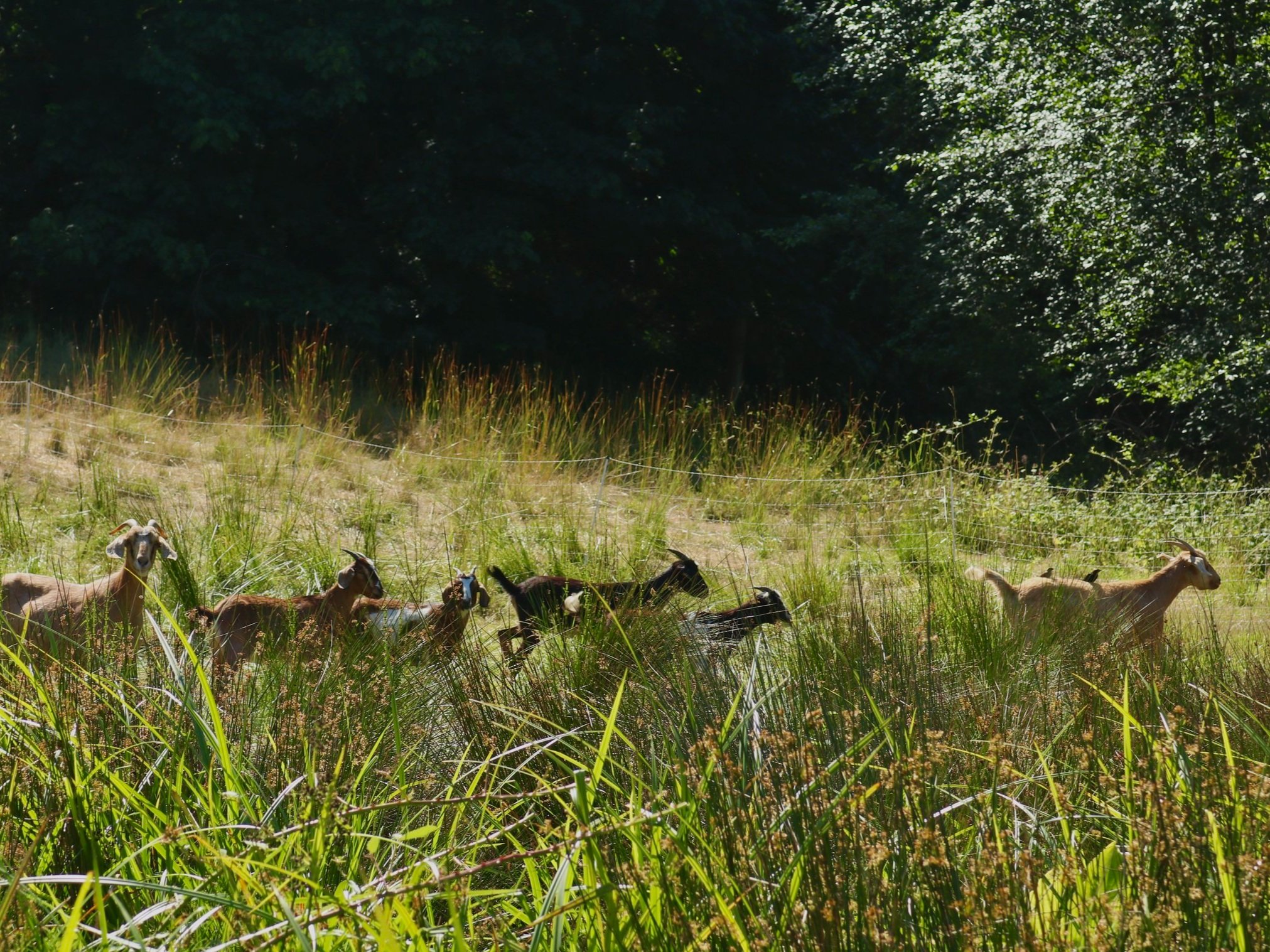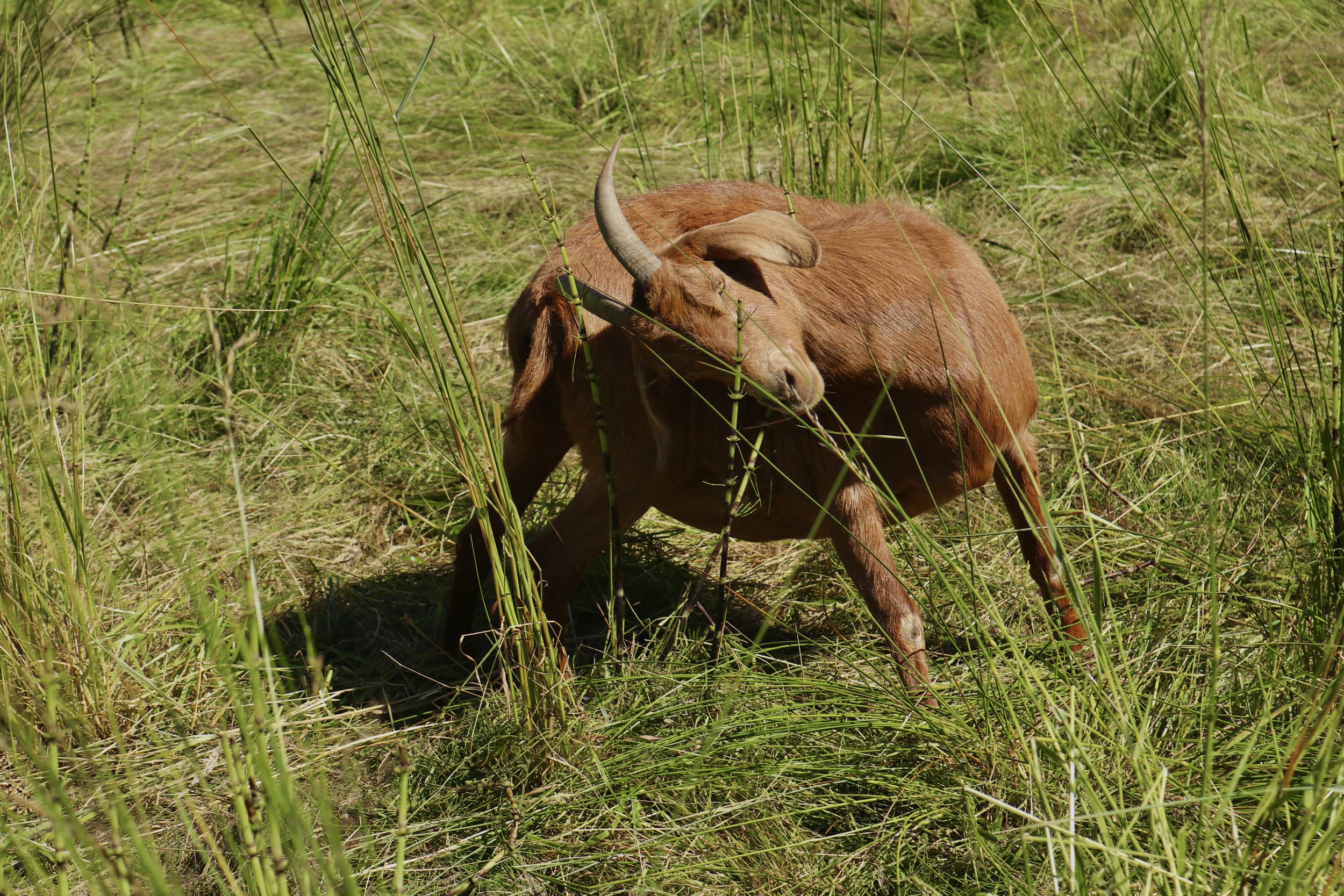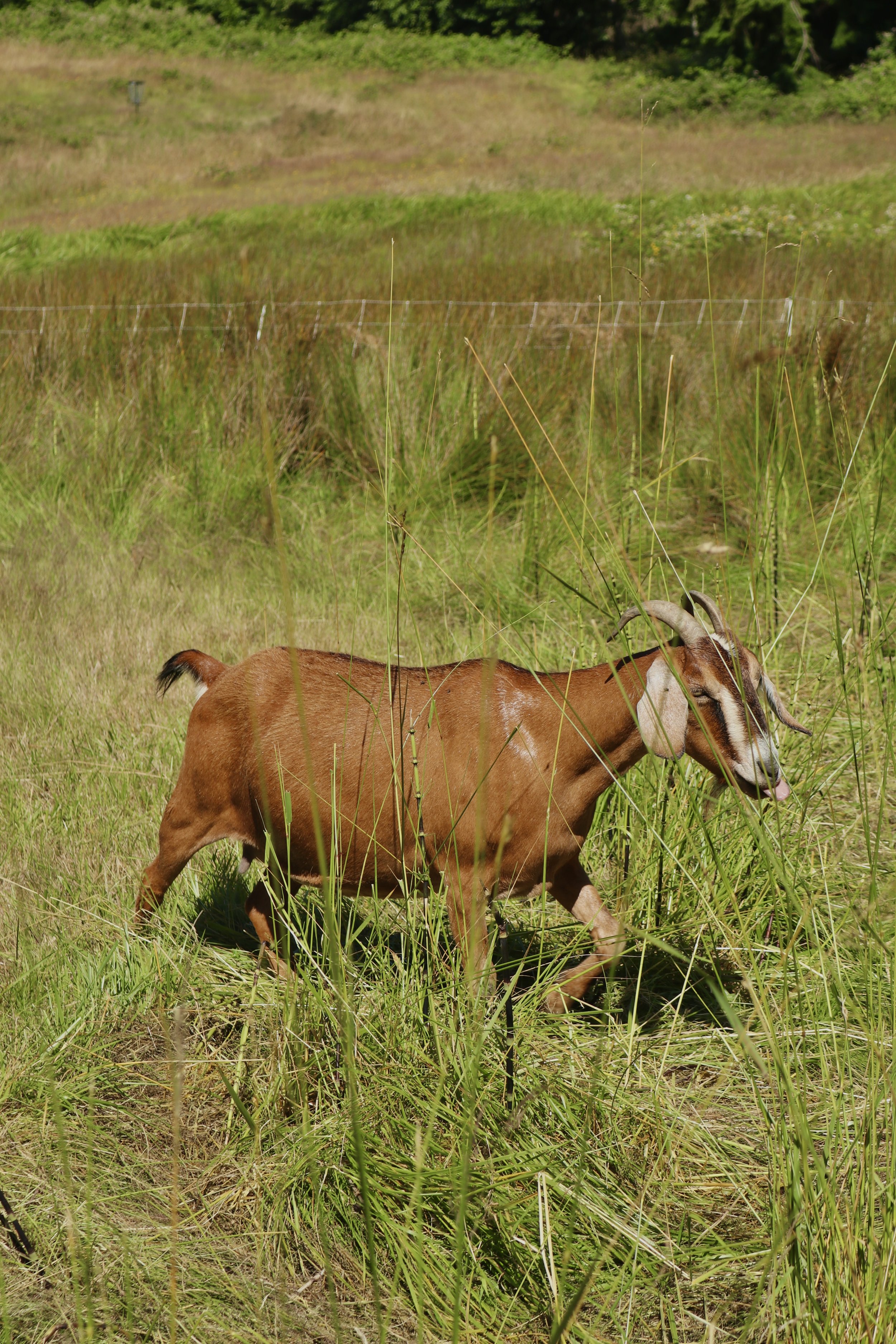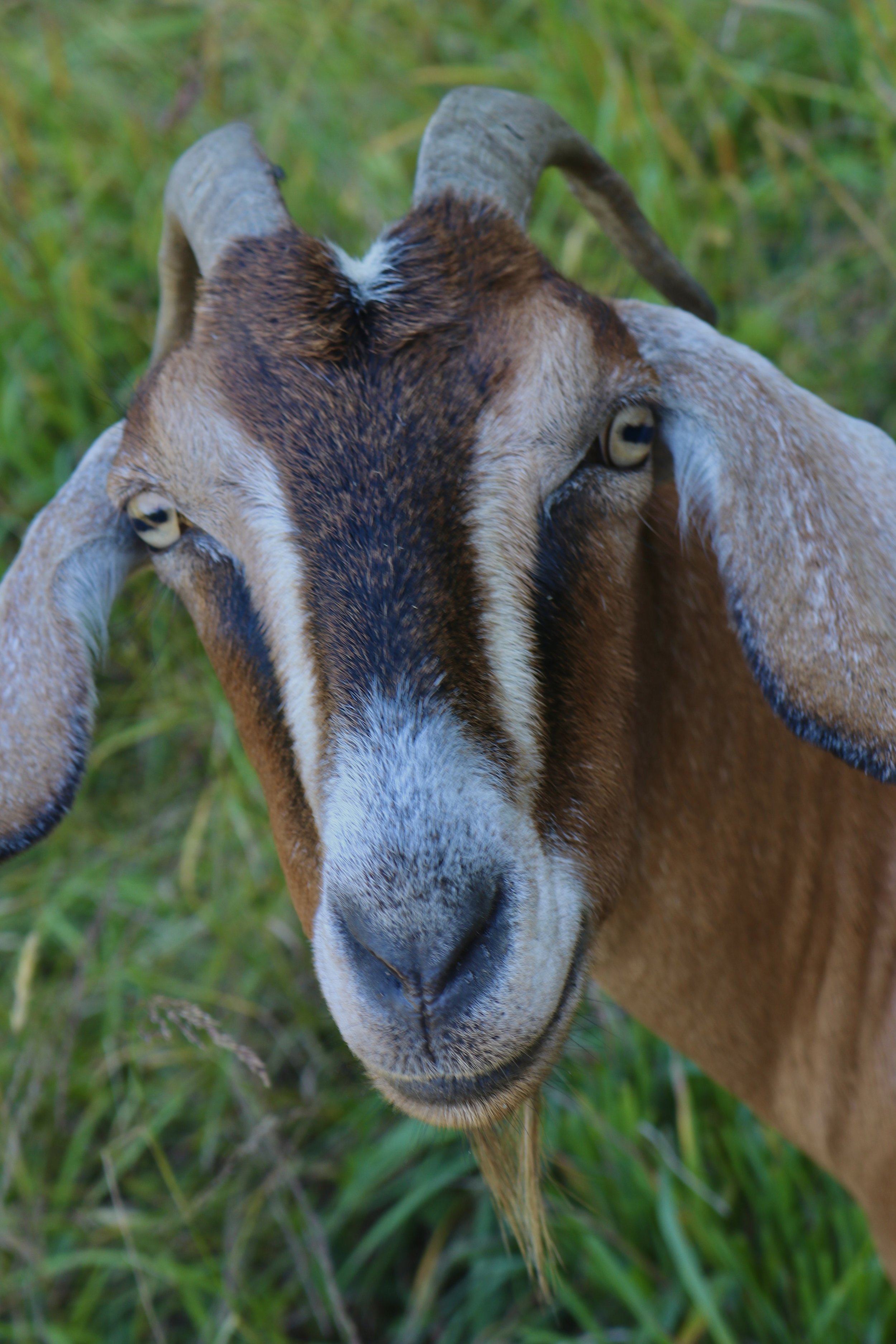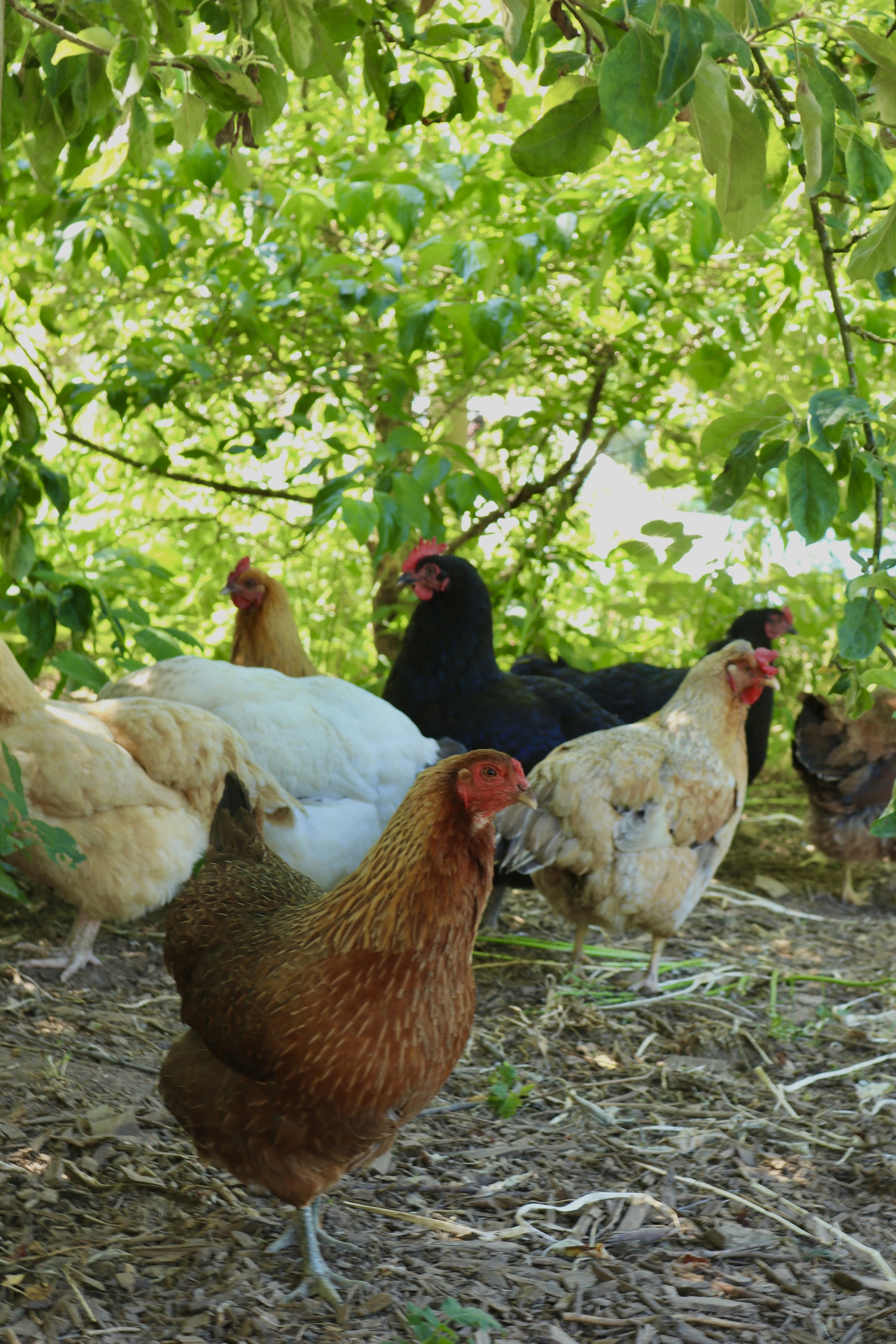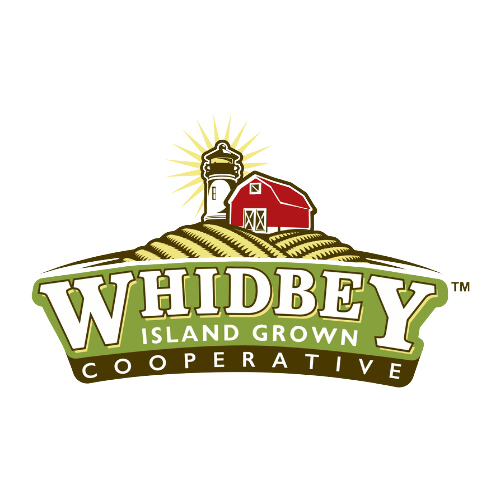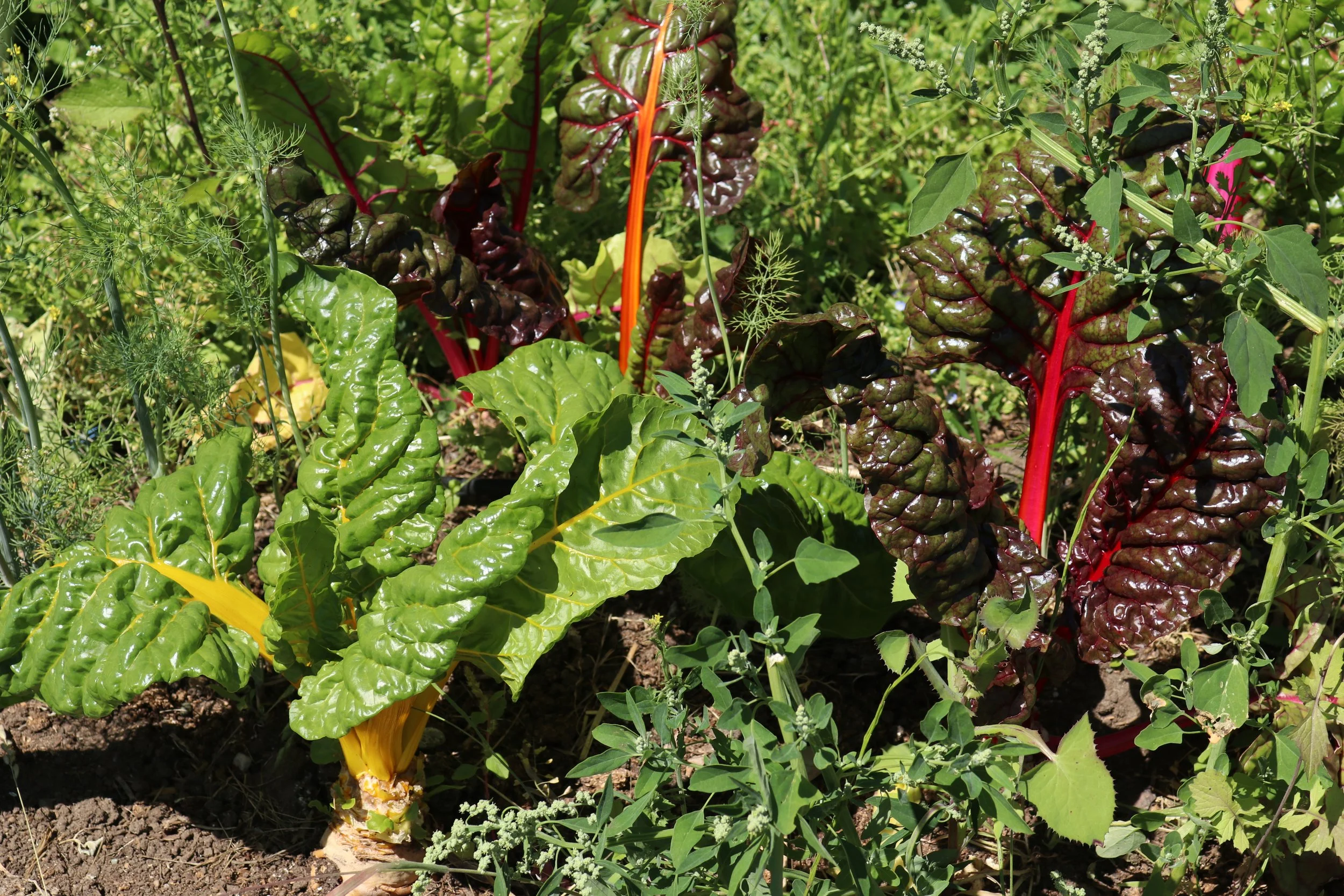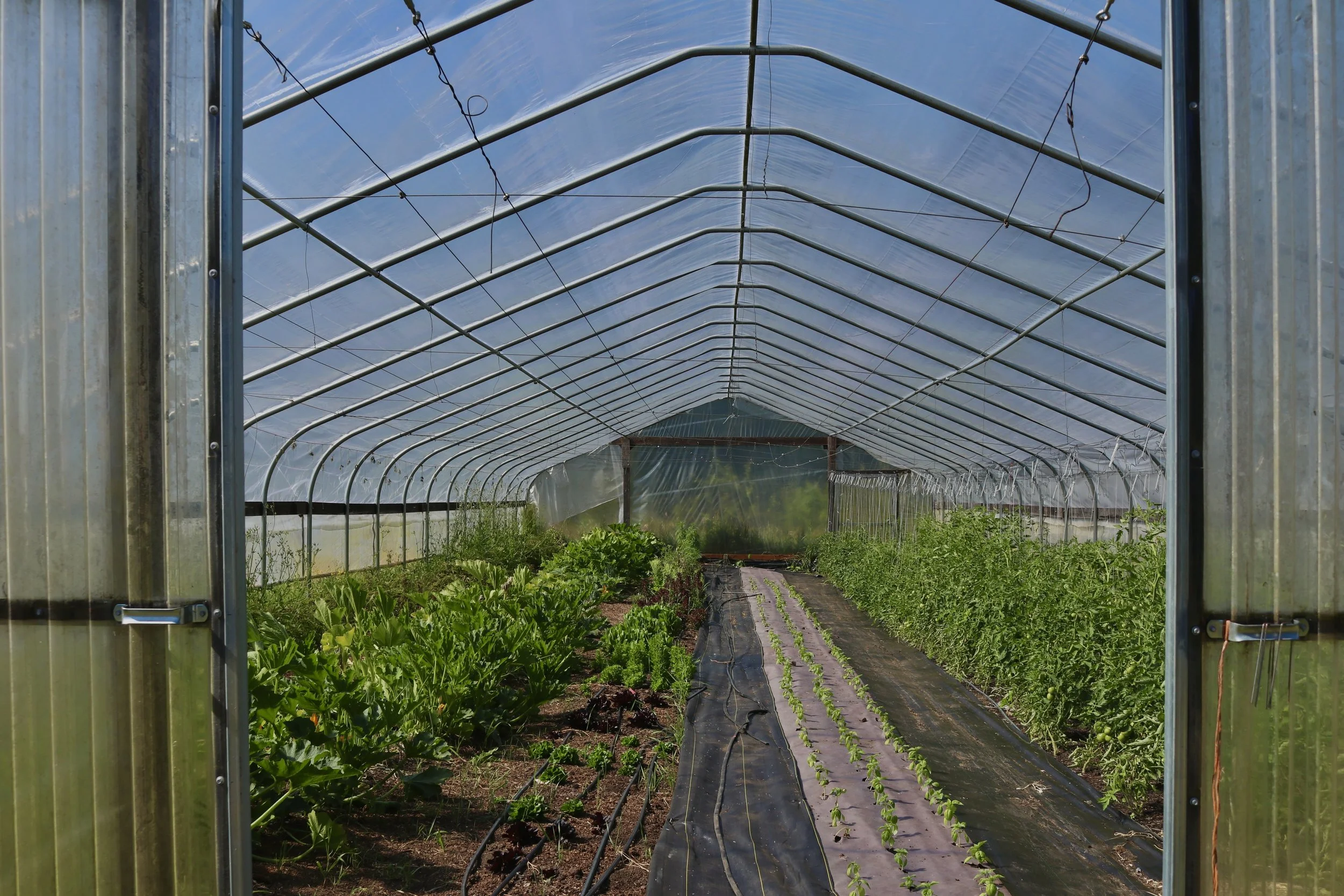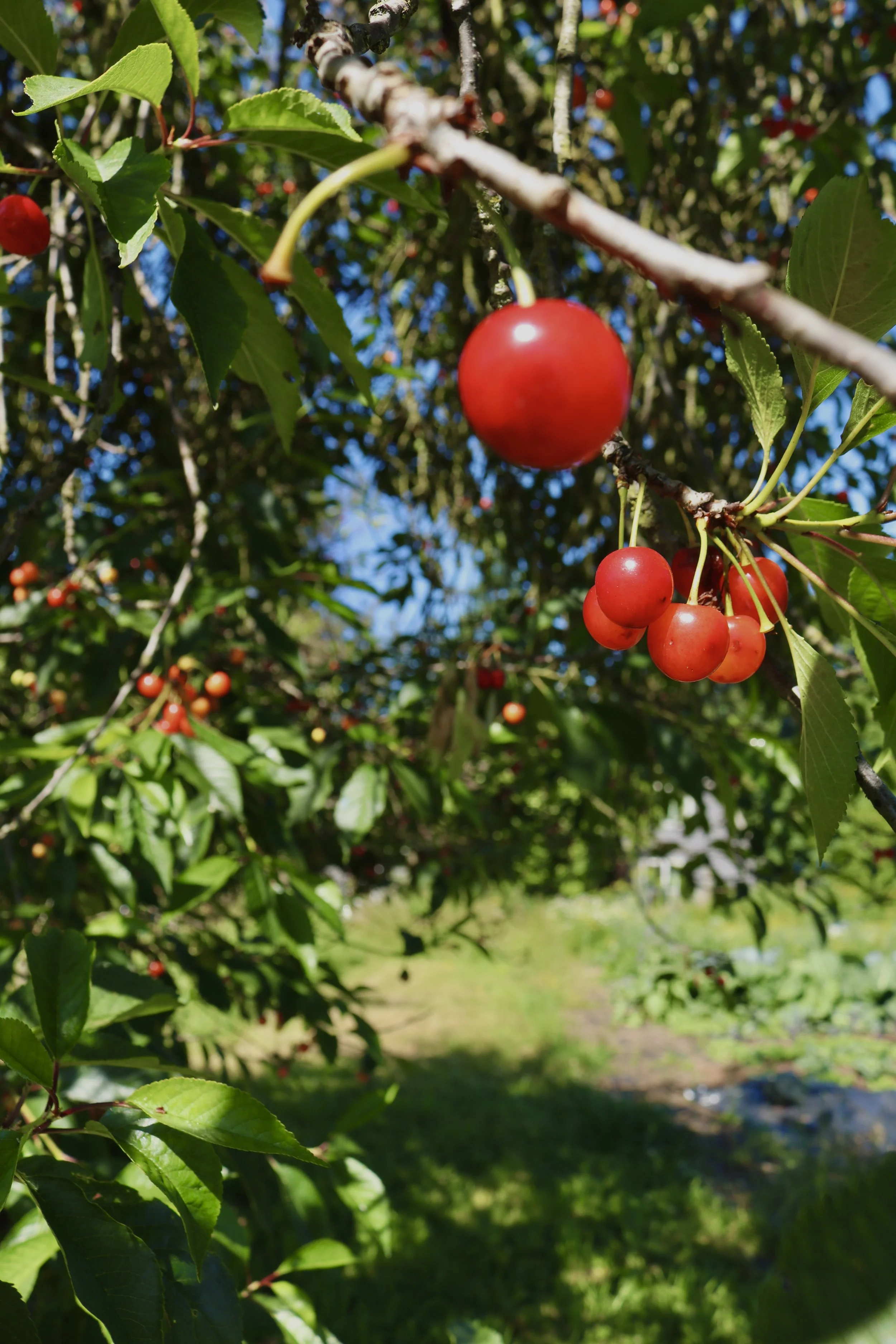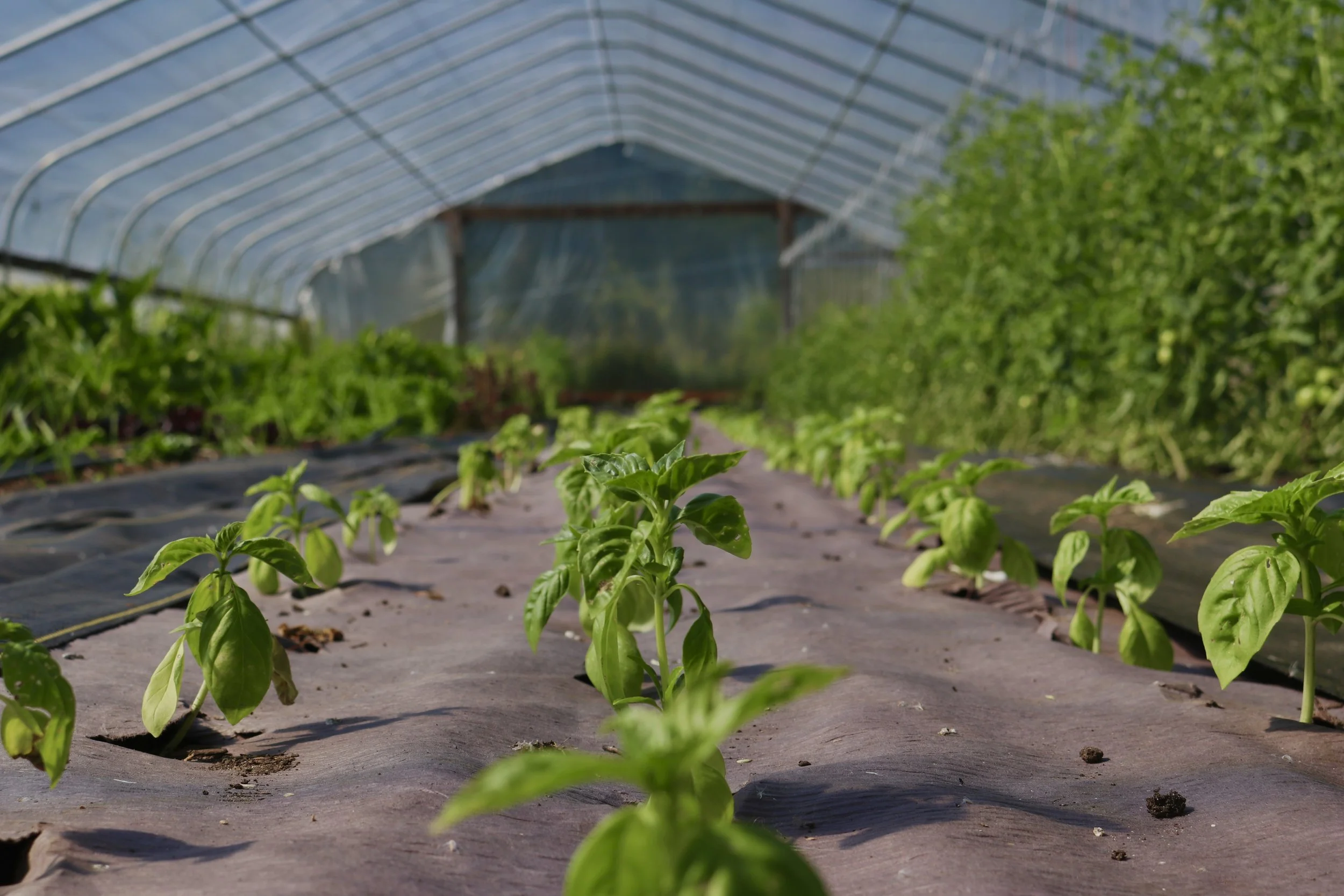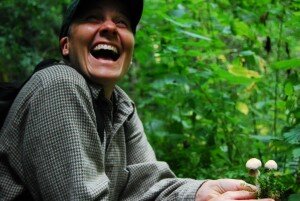SkyRoot Farm
Welcome to SkyRoot Farm, a 20-acre certified organic vegetable farm nestled on South Whidbey Island. Eli Wheat, the visionary farmer and lecturer/faculty member at the University of Washington, has a deep-rooted passion for farming and sustainable practices and has transformed SkyRoot into a thriving hub of regenerative agriculture. Eli, his family, and their group of rotating interns are in their 13th year of growing organic produce for Whidbey Island residents, all while maintaining their goals and feeding our community.
We asked Eli a series of questions about his farm and himself. Read on to learn more about one of your local producers
From Upstate New York to Whidbey Island - Eli's Journey into Farming and Education
Here Eli is seen harvesting Chamomile - which happens to be one of his favorite crops to grow.
Origin - Eli grew up on a farm in upstate New York, which ultimately fueled his lifelong connection to farm life and inspired his careers as a farmer and educator. After obtaining a bachelor's degree in biology, he pursued various paths, including working as a park ranger in NYC and educating abroad in Costa Rica, before teaching at a school for at-risk boys in Oregon. At this school, Eli had the opportunity to manage farmland for the first time. Yearning to expand his knowledge, he enrolled in a course at the University of Oregon where he learned how to properly educate youth about farming.
Professional Career- After some time in Oregon, he traveled up north and began a P.h D program at the University of Washington in Seattle. This would kickoff his career as an educator at the UW, and lead to his introduction to Whidbey/SkyRoot. During this time, he took it upon himself to start a farm at UW. The 1.5 acre farm, which was once unused land, is now a urban agricultural and educational hub that has produced over 6 tons of produce for the UW and local community.
Eli made many meaningful connections while studying and working at UW. In fact, it was another faculty member who connected him to SkyRoot. This faculty member originally owned the farm and needed assistance taking care of the land. So, Eli split his time between UW and Whidbey, teaching and farming. After getting to know the area, and evidently falling in love with the land, Eli purchased the farm and SkyRoot’s transformative journey began.
Cultivating Regeneration at SkyRoot -
One of Eli's major focuses is on regenerating ecosystem function and the productivity of the land, which was not originally producing any food. When we asked Eli about what sustainable practices he implements into this day to day, he replied with ‘I think of this farm as a regenerative farm, and if we are doing a good job regenerating things, then we are certainly following the principles of sustainability.’ Prioritizing regeneration creates a symbiotic relationship between the farm workers and the land.
At the farm, they try to think about how to create a ‘center of gravity’. A big way they are doing this is by moving animals, collecting manure, creating and using their own compost and utilizing chickens to build productivity in pasture areas (read to the end to see a gallery of the SkyRoot farm animals). Eli feels that at SkyRoot, they cultivate the margins by working with and harnessing biodiversity, all with a bent towards food production. This attitude has completely transformed the land and has made it possible for the farm to provide over 100 families a week with multiple types of lettuce and seasonal vegetables. Additionally, the farm produces enough fresh eggs, goat meat, and more to feed Eil’s family and those working on the farm.
No Till Approach - It was very clear during our interview that Eli is very proud of the lack of tilling that happens at SkyRoot. The soils have not been tilled in 4 years. Occasionally they fire up the walk behind rototiller to treat soil for their greenhouse when soil pathogens need to be managed. However, the soil on the regular farm space has not been tilled in years. By abstaining from this invasive form of management, the plants and soil are much healthier and a soil microbiome has the chance to properly form; therefor, cultivating healthy fungal and bacterial communities underground. Those fungal and bacterial communities are fueling the productive growth of their crops.
Nurturing Community and Economy -
SkyRoot Farm serves as a beacon of community building, forging strong connections between people, land, and food. Eli passionately emphasizes the farm's role in regenerating human interest and community around the agricultural landscape. Through shared experiences and a deep connection to place, SkyRoot Farm offers the chance for individuals to reconnect with nature and the origins of their sustenance.
The farm's immersive approach invites visitors to become part of the farm's ecosystem, fostering shared experiences. Eli recounts how it is not uncommon to have "bonus persons" on the farm, individuals who immerse themselves in the daily rhythms of farm life, connecting with the land, plants, and animals and are constantly learning. These interactions not only enrich the experience of visitors but also strengthen the bond between the community and the farm.
Economic opportunity - Eli explained that farms can play a huge role in stimulating local economies and that the Food HUB is a great example of that. However, he also believes that farmers can drive and develop a sustainable local economy that transcends traditional cash exchange systems. By cultivating a market based on mutual support and local resources, the SkyRoot strives to create an economic structure that aligns with the same principles of regeneration that the agricultural practices follow. This holistic approach fosters economic resilience, local self-reliance, and an interconnectedness that extends beyond extractive monetary transactions.
Impact of the Food Hub on SkyRoot -
Eli believes that the Food Hub is one of the most exciting things that has happened since we started selling produce on the island. He is excited by a food system where community members within the system can have relationships with local people who are growing their food. One of the things he thinks about a lot is the power of a community when you can keep its resources local.
He also value input from community members - what matters to them matters to us, he says. He loves that the Food Hub exists because it is a great way to connect the people on the island - Whidbey consumers to Whidbey producers. In a past interview he said ‘Food Hub producers can join together collectively to give the grocery stores a run for their money’.
Fun Facts about Eli -
Favorite musician:
Ani DiFranco - I have every album she’s ever made on my little music player, which is in the barn, so sometimes I’ll put an Ani DiFranco on and we’ll listen to her all day long.
Favorite place on the island:
The farm is my favorite place on the island for sure. I never am looking for an excuse to leave. There are hills, trees, valleys - 18 different ways to feel here. If you want to do any of the fun things, you can do them here. The farm also has the best sunsets.
Favorite Meal:
Eggs -Toad in a hole or eggs with arugula. Also Swedish meatballs.
Hobbies outside of farming:
Writing, Guitar
Connect with SkyRoot
- -
Connect with SkyRoot - -
You can buy from SkyRoot Farm -
They have a CSA and virtual farm stand that you can access from their website here. And when available, they'll have products on the Food Hub here.
SkyRoot’s Instagram
SkyRoot’s Facebook
Producer Feature by Ella Simmons
Fun Facts by Rachel Joseph
Farm Animal Gallery



